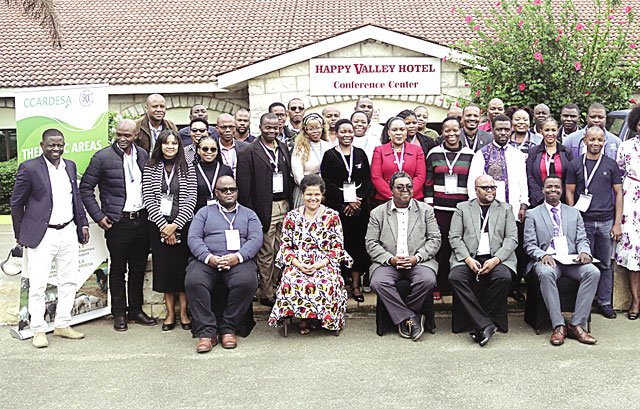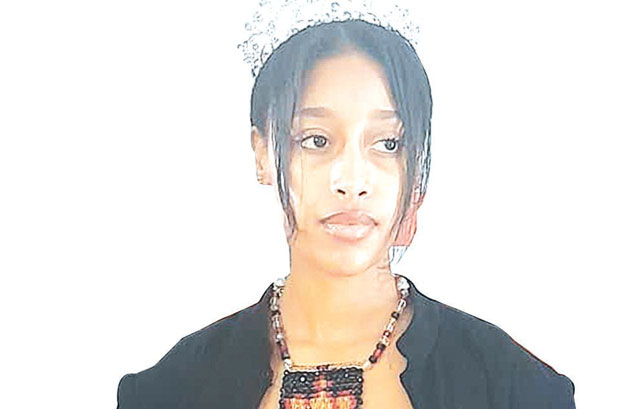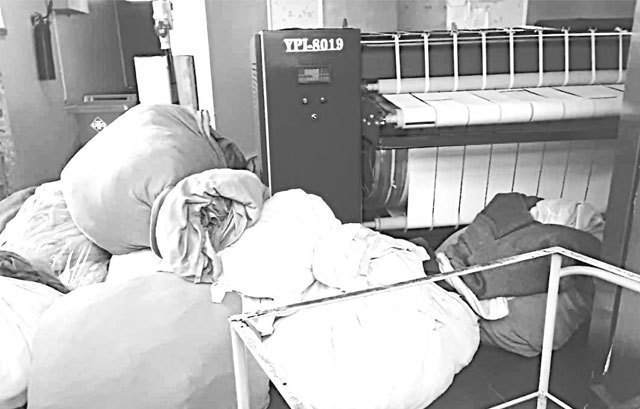By Alec Lushaba | 2018-05-26

The enactment of the Sexual Offences and Domestic Violence Act has taken too long and it is now starting to challenge our pledge and commitment towards promoting the rights of women and children.
We cannot afford to let women and children down in the year where we have prioritised issues of women, in particular the call to empower them, by ensuring that they are elected into positions of power including Parliament.
Our continued failure to pass this law means that we should forget about women rights as enshrined in Section 28 of the Kingdom of Eswatini Constitution.
There is a strong sentiment amongst traditionalists that the Bill passed as drafted would shake some fundamental pillars of Swazi customs.
I don’t want to buy that logic. Any effort at frustrating the Bill has nothing to do with our being as a Swazi society, because we respect the role of women in our society and abuse of women does not define who we are.
However, having said so, I must state that the law does not intend to turn the country upside down, but to ensure that the impunity against women and children is stopped and are provided with safer space in order to make a meaningful contribution to the Kingdom of Eswatini we all desire.
The debate around the Bill should focus more on what it aims to achieve. At the centre of this Bill is to enforce and give effect to the Constitution of the Kingdom.
The Bill defines its objectives as follows;
To give effect to certain rights which are enshrined in the Constitution of the Kingdom of Eswatini Act of 2005, including the right to equal protection by the law, the right to privacy, the right to protection from inhumane and degrading treatment.
To strengthen and consolidate certain common law and statutory provisions so as to adequately provide for the successful dealing, in non-discriminatory manner, with sexual offences and domestic violence and to provide adequate protection to complainants;
Eliminate gender inequalities in relation to power and decision making and to provide protection to women and children who are the most vulnerable group in society which has resulted in a high incidence of their discrimination and abuse.
Respond to the outcry on escalation of sexual offences and domestic violence against women and children including infants, which has accelerated the HIV and AIDS pandemic, by imposing high terms of imprisonment on convicted persons; Give effect to several international legal instruments, including –
n The Universal Declaration of Human Rights, 1948
n The African Charter on Human Rights and People’s Rights, 1968 and the Protocol to that charter on the Rights of Women in Africa, 2003
n The Convention on the Rights of the Child; and women
n The United Nations Convention on the Elimination of All Forms of Discrimination against Women, 1979.
n Provide for other incidental matters.
When you read the objects and the values we want to uphold as a country, we already subscribe to many of them. Why is it a problem therefore to put them together in the shape and form of the Bill being considered by Senate?
The Bill seeks to embolden the Constitution insofar as the issue of rights for women and children is concerned.
In enacting this Act we must be guided by the understanding that the Constitution of the Kingdom of Eswatini remains the supreme law of the land.
This is stated in Section 2 (1) This Constitution is the supreme law of Swaziland (Eswatini) and if any other law is inconsistent with this Constitution that other law shall, to the extent of the inconsistency, be void.
(2) The King and iNgwenyama and all the citizens of Swaziland have the right and duty at all times to uphold and defend this Constitution.
Section 4 states the following: The King and iNgwenyama has such rights, prerogatives and obligations as are conferred on him by this Constitution or any other law, including Swazi law and custom, and shall exercise those rights, prerogatives and obligations in terms and in the spirit of this Constitution.
This is the Constitution in Section 11 where its states: The King and iNgwenyama shall be immune from —
(a) suit or legal process in any cause in respect of all things done or omitted to be done by him; and
(b) being summoned to appear as a witness in any civil or criminal proceeding.
So why should Senators be so-scared of the Bill as though it wants to undo Swazi law and custom?
The Bill without being exhaustive is pointing at elements of offences that constitute the violations against women and children.
The Bill if passed would empower our courts to deal decisively with perpetrators of gender based violence.
The contentious clauses which seem to be giving Senators sleepless nights are as follows; Clause 3 which deals with rape, Clause 4 which deals with incest, Clause 10 (unlawful stalking), Clause 42 Abduction, Clause 47 (flashing) and Clause 151 Marital or other relationship no defence (marital rape).
Our law presumes one to be innocent until proven guilty. There will be cases where alleged victims would want to take chances and cry rape or any of the offences mentioned, but the good thing about law is that the one who alleges has to prove to the courts that indeed such an offence happened and the circumstances justify guilt.
So in dealing with this Bill we must not be heard or understood to be condoning any of the alleged offences but must be concerned about finding solutions. The courts in their wisdom and mandate will determine the guilt and otherwise of any individual accused of any of the offences that fall under this proposed Act.
The resistance in passing the law indicates at the failure of our government ministers or officials to properly justify why the law is important.
Any law that is passed must talk to us first (as a nation) before it speaks to donors and or sponsors.
The spirit at which we must look at any law is the improvement it will bring to our society. Would it make our people’s lives better? If it does that - cool, let’s go ahead and have the law.
Any good law is bad, if it fails to meet the expectations of the society it seeks to serve. In this case, the issue of gender based violence is serious and we cannot dilly-dally when the lives of women and children are at stake.
When it comes to the institution of the monarch, let me state here that the King is in safe hands when with the people.
He does not need laws to protect him, but the people. The King and the people are one. He is what we are.
share story
Post Your Comments Below

Status Capital Building Society shareholders are once again being asked to take part in an audaci...

Eswatini along with many other African nations is under scrutiny for failing to meet its commitme...

BEAUTY Pageant Eswatini Chairman, Sandra Ismail, officially passed over the Miss Eswatini title t...

While things are falling apart at the Pigg’s Peak Government Hospital, the ministry of heal...
All material © Swazi Observer. Material may not be published or reproduced in any form without prior written permission.
Design by Real Image Internet